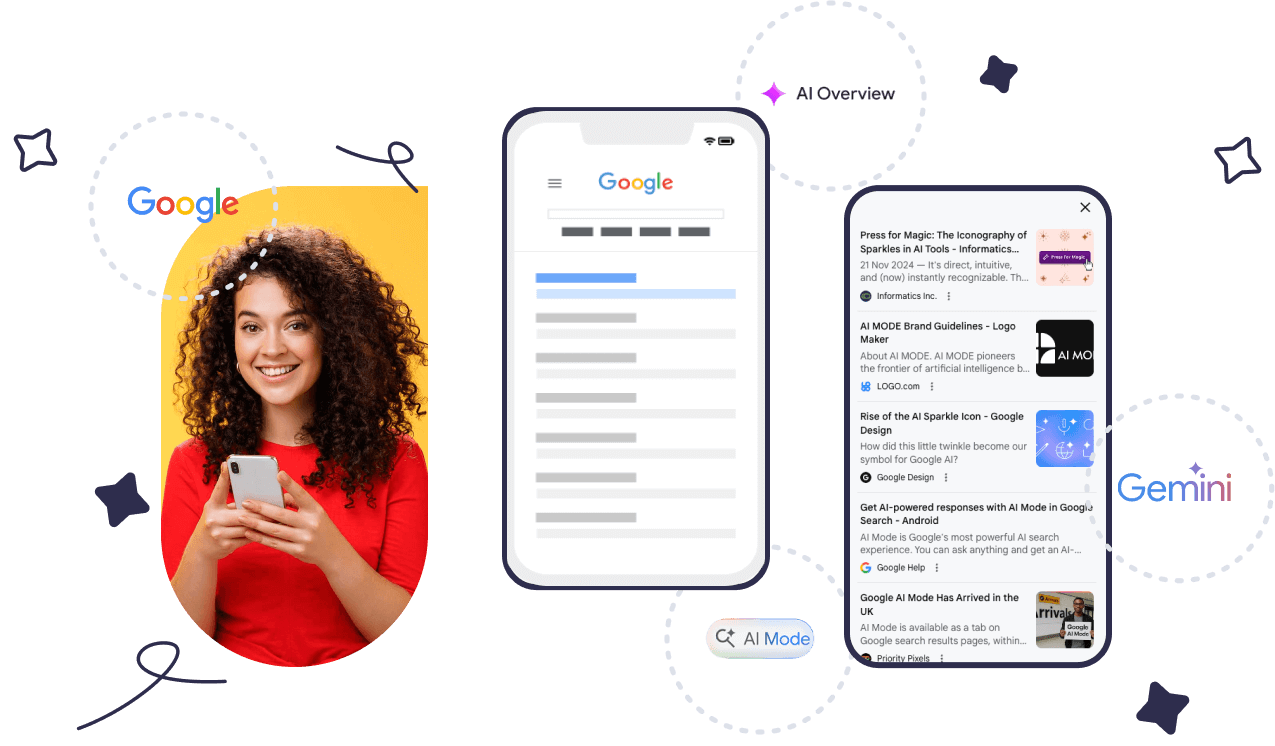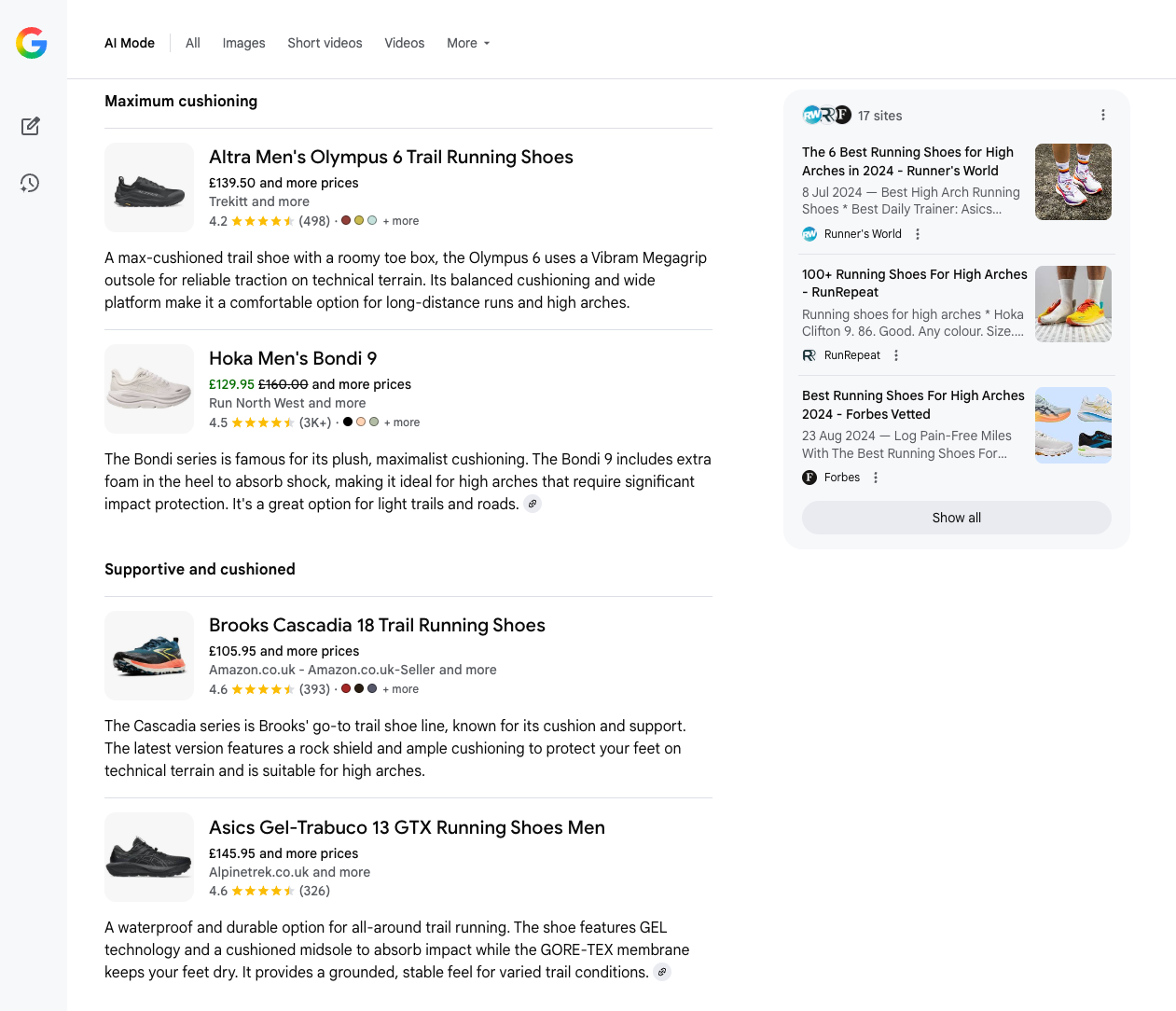Google AI experiences: AI Overviews, AI Mode & Gemini
We’ve been optimising around Google's AI algorithms for the last decade, from foundational ranking systems to the generative AI answer layers reshaping search

Become the recommended brand in Google AI Experiences
Many websites are losing traffic as users find their answers without clicking—but the brands featured in those AI answers gain authority, trust, qualified traffic, and in many cases improved conversion rates for the users who do click. This is a winner-takes-all environment where strategising for intent-matched topical dominance through citations and brand mentions is the new frontier.
.png)


Google AI SEO
Traditional SEO signals remain the foundation of visibility in Google’s AI-driven search experiences. As with all niche SEO tactics—like SERP feature optimisation, video SEO, or ecommerce SEO—the emerging area of Generative Engine Optimisation (GEO) is simply one more consideration for your SEO campaign.
Optimising for AI Overviews and AI Mode should be part of any multi-faceted, contemporary SEO strategy... viewed through a particular lens, built on different datapoints, and aimed at specific outcomes.
AI Overviews
AI Overviews are the most prominent feature of Google's new AI search experience. They are dynamically generated, multi-source summaries that appear at the top of the search results.


AI Mode
Beyond a single summary, AI Mode takes the AI Overview experience and presents it as conversational, context-aware chat interface, with embellished and augmented features.
Increasingly, for more complex or exploratory searches, the traditional SERP is also being restructured into AI-generated categories and logical next steps. AI Mode launched as a standalone feature, but it is evolving into a much more integrated and embedded philosophy for the entire search experience.
Gemini
Gemini is Google's AI chat interface—their answer to OpenAI's ChatGPT. It is a multimodal Large Language Model (LLM) and can be used as an AI chat in its own right, and it is the underlying foundation for both AI Overviews and AI Mode.

Optimising for Google's AI search experiences
The tactical foundations of SEO haven't changed. Great brands, great content, solid technical foundations, strong marketing, and engaging UX will still win. The evolution is in strategy and measurement.
Technical SEO
AI systems reward optimised information architecture, accurate semantic context, and codebases that allow for AI agent interactbility.
Content Strategy
The strategic pivot from keywords to topical authority and intent is not new, but it's more crucial than ever in the age of conversational AI SEO.

Traditional SEO
Demonstrating experience, expertise, authority and trust are just as important for AI visibility as they are for traditional SEO.

Citation Seeding
Strategically placed content designed to influence AI systems as they train, find information in real-time, and collect citations.
What's the difference between AI Overviews & AI Mode?
Talk to an expert to learn moreTrusted GEO & SEO Agency
Hear from a few of our amazing clients

